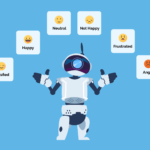Privacy and Security Concerns in Digital Assistants
Digital assistants, such as Apple’s Siri, Google Assistant, and Amazon’s Alexa, have become an integral part of our daily lives. They help us with everything from setting reminders and controlling smart home devices to providing news updates and even making shopping lists. However, as these technologies become more advanced, they also raise significant privacy and security concerns that need to be addressed. In this blog, we will explore the evolution of digital assistants, the concerns they bring today, and what the future might hold for their security and privacy.
How Does it Work?
Digital assistants rely on advanced machine learning algorithms, speech recognition, and cloud computing to process and respond to user commands. When you speak to a device like an Amazon Echo or a smartphone with Siri, your voice is captured and sent to a cloud server for analysis. The server processes your request, fetches relevant information, and sends a response back to the device, all in a matter of seconds. This setup allows these devices to offer real-time assistance, but it also means that much of the information you provide is processed and stored remotely.
The Past History: From Voice Recognition to Virtual Assistants
The journey of digital assistants began with the simple need for voice recognition. Early devices could only understand basic commands, such as dialing a phone number or setting an alarm. In the late 2000s, Apple introduced Siri, a more sophisticated assistant that used natural language processing to respond to a wide range of queries. Shortly after, Google Assistant and Amazon’s Alexa joined the market, marking the start of a new era in AI-powered personal assistants.
However, during these early years, privacy wasn’t as much of a concern. Digital assistants were still in their infancy, and the focus was on improving their capabilities and making them more user-friendly. But as these devices started listening to our daily conversations and storing data, the implications on privacy became more apparent.
The Present: Growing Privacy Concerns
Today, digital assistants are capable of doing far more than we could have imagined just a few years ago. They can book appointments, read emails, answer complex questions, and even control household appliances. But with this growing functionality comes increased risk. Digital assistants are always listening for their wake word (e.g., “Hey Siri” or “Alexa”), and in doing so, they continuously collect and process audio data. While this data helps the assistant improve its responses, it also raises significant privacy concerns.
One of the biggest issues is data storage. Many tech companies retain voice recordings to improve their assistant’s accuracy, which could mean sensitive or private conversations are being stored in the cloud. In some cases, this data is analyzed by human contractors to fine-tune the assistant’s capabilities. This practice has sparked fears about surveillance and unauthorized access, as hackers could potentially gain access to these recordings. Even major tech companies, such as Apple and Amazon, have faced scrutiny over their data practices in the past.
Additionally, there are concerns about data sharing across multiple devices and platforms. If a user’s voice data is shared with third-party apps or services without their knowledge, it could expose personal information. Furthermore, some assistants track user preferences and search histories to provide tailored experiences, which means they could inadvertently reveal sensitive information, like location, habits, or financial status.
The Future: Striving for Better Security
As digital assistants continue to evolve, the focus on privacy and security will intensify. The future promises more secure and privacy-conscious technologies, with companies offering users more control over their data. For example, Apple has taken steps to reduce the amount of personal data collected by Siri, allowing users to delete their voice recordings, and introducing features like “offline mode” to prevent their data from being sent to the cloud.
On the horizon, we may also see better encryption technologies that will make it harder for hackers or third-party services to gain access to personal data. Additionally, companies are likely to integrate more privacy controls into digital assistants, offering users the ability to opt out of data collection or limit the sharing of their information.
However, these improvements won’t come without challenges. As digital assistants become more integrated with other smart devices and services, maintaining a high level of privacy and security across a vast network of interconnected devices will become increasingly difficult. Newer technologies, such as voice biometrics, will need to be carefully implemented to ensure user data is both secure and private.
Pros of Digital Assistants
Despite the privacy and security concerns, digital assistants come with many benefits that make them indispensable to many users:
- Convenience: Digital assistants streamline daily tasks by providing hands-free help with setting reminders, sending messages, and more.
- Productivity: They help users stay organized, offering calendar management, to-do lists, and other tools that increase productivity.
- Smart Home Integration: Assistants integrate seamlessly with smart home devices, allowing users to control lighting, temperature, and security systems with simple voice commands.
- Entertainment: Digital assistants can stream music, play podcasts, and even tell jokes or stories, offering users an entertainment hub right at their fingertips.
Cons of Digital Assistants
Despite their advantages, digital assistants come with several drawbacks:
- Privacy Risks: The constant listening and data collection present major privacy risks. Sensitive conversations could be stored and potentially accessed by unauthorized parties.
- Security Vulnerabilities: Hackers could exploit vulnerabilities in the system, gaining access to private information or even controlling connected devices.
- Over-Reliance: The increasing reliance on digital assistants could lead to a lack of human interaction, and in some cases, an overdependence on technology to handle simple tasks.
- Data Misuse: Data collected from users may be used for targeted advertising or sold to third parties, leading to concerns about surveillance and exploitation.
Conclusion: Balancing Convenience and Privacy
Digital assistants are undoubtedly transforming the way we interact with technology, making our lives more convenient and efficient. However, as they become more powerful, the need for privacy and security measures becomes even more critical. While tech companies are taking steps to improve transparency and control over user data, it remains essential for users to be vigilant about their privacy settings and stay informed about the data these devices collect.
In the future, digital assistants will likely become even more sophisticated, and with it, the need for enhanced security and privacy protocols. The key to their continued success will be finding a balance between convenience and safeguarding user information. Only time will tell how digital assistants will evolve, but one thing is clear: as technology advances, so must our awareness of the risks and the steps we can take to protect our privacy.




Leave a Reply
Want to join the discussion?Feel free to contribute!